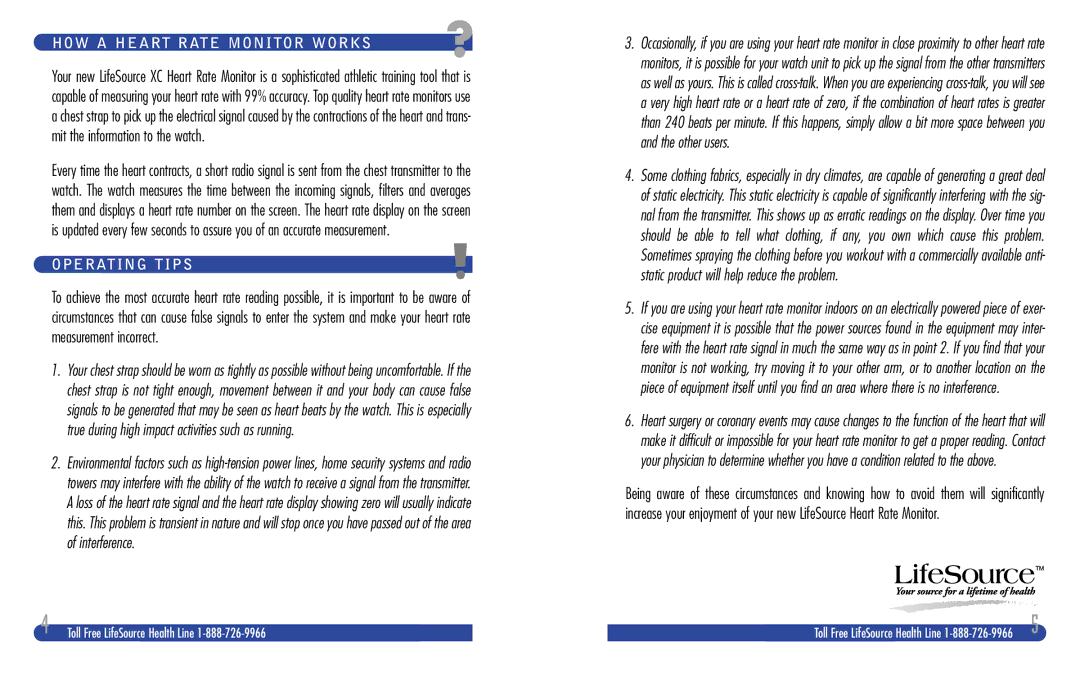
HOW A HEART RATE MONITOR WORKS | ? |
|
Your new LifeSource XC Heart Rate Monitor is a sophisticated athletic training tool that is capable of measuring your heart rate with 99% accuracy. Top quality heart rate monitors use a chest strap to pick up the electrical signal caused by the contractions of the heart and trans- mit the information to the watch.
Every time the heart contracts, a short radio signal is sent from the chest transmitter to the watch. The watch measures the time between the incoming signals, filters and averages them and displays a heart rate number on the screen. The heart rate display on the screen is updated every few seconds to assure you of an accurate measurement.
OPERATING TIPS
To achieve the most accurate heart rate reading possible, it is important to be aware of circumstances that can cause false signals to enter the system and make your heart rate measurement incorrect.
1.Your chest strap should be worn as tightly as possible without being uncomfortable. If the chest strap is not tight enough, movement between it and your body can cause false signals to be generated that may be seen as heart beats by the watch. This is especially true during high impact activities such as running.
2.Environmental factors such as
3.Occasionally, if you are using your heart rate monitor in close proximity to other heart rate monitors, it is possible for your watch unit to pick up the signal from the other transmitters as well as yours. This is called
4.Some clothing fabrics, especially in dry climates, are capable of generating a great deal of static electricity. This static electricity is capable of significantly interfering with the sig- nal from the transmitter. This shows up as erratic readings on the display. Over time you should be able to tell what clothing, if any, you own which cause this problem. Sometimes spraying the clothing before you workout with a commercially available anti- static product will help reduce the problem.
5.If you are using your heart rate monitor indoors on an electrically powered piece of exer- cise equipment it is possible that the power sources found in the equipment may inter- fere with the heart rate signal in much the same way as in point 2. If you find that your monitor is not working, try moving it to your other arm, or to another location on the piece of equipment itself until you find an area where there is no interference.
6.Heart surgery or coronary events may cause changes to the function of the heart that will make it difficult or impossible for your heart rate monitor to get a proper reading. Contact your physician to determine whether you have a condition related to the above.
Being aware of these circumstances and knowing how to avoid them will significantly increase your enjoyment of your new LifeSource Heart Rate Monitor.
4 |
|
|
|
| 5 | |
Toll Free LifeSource | Health Line |
| Toll Free LifeSource | Health Line | ||
